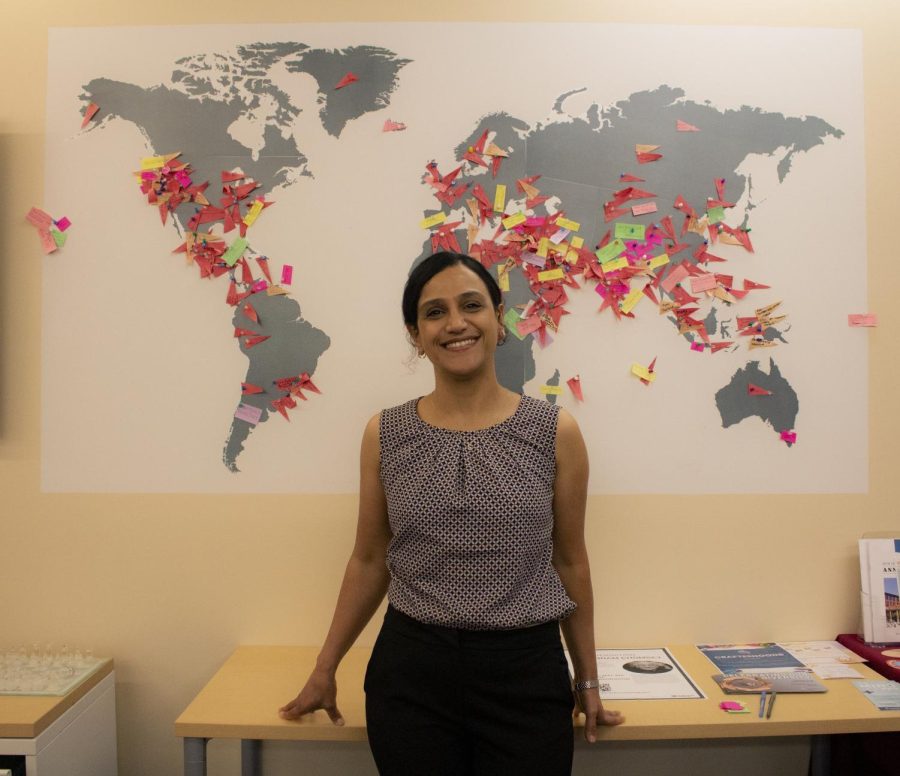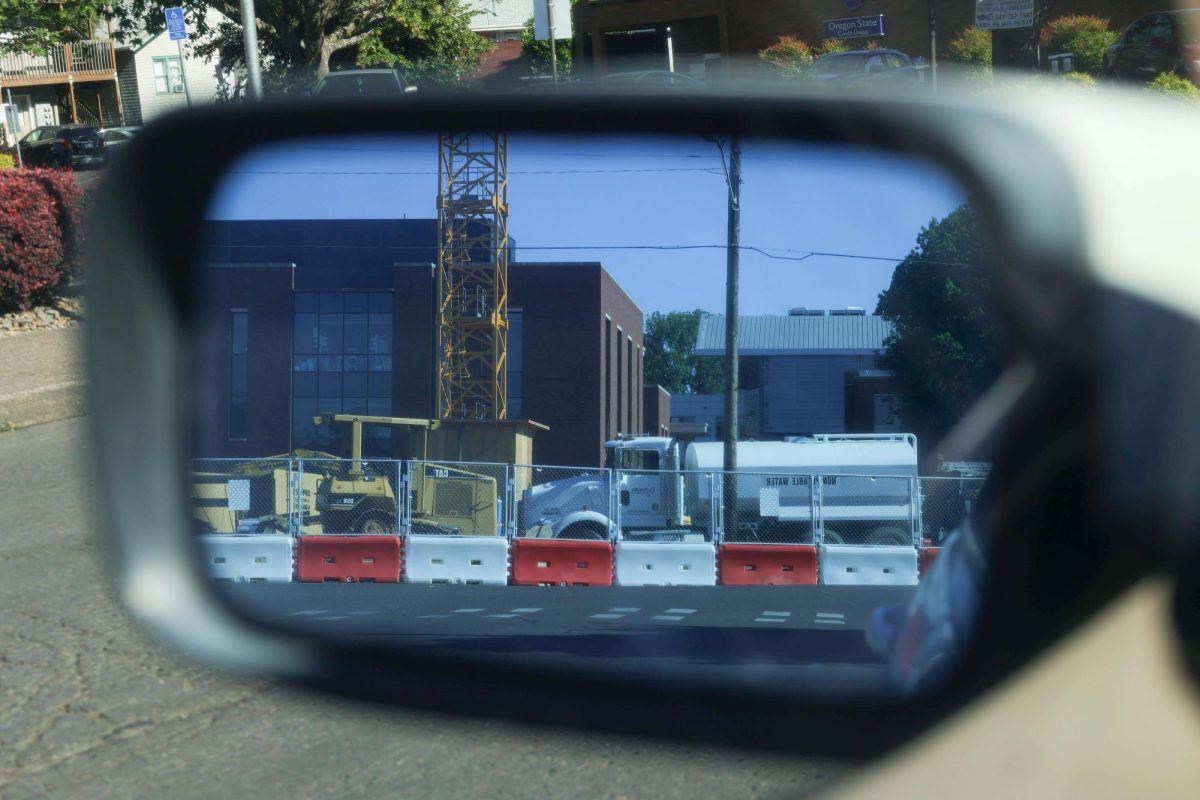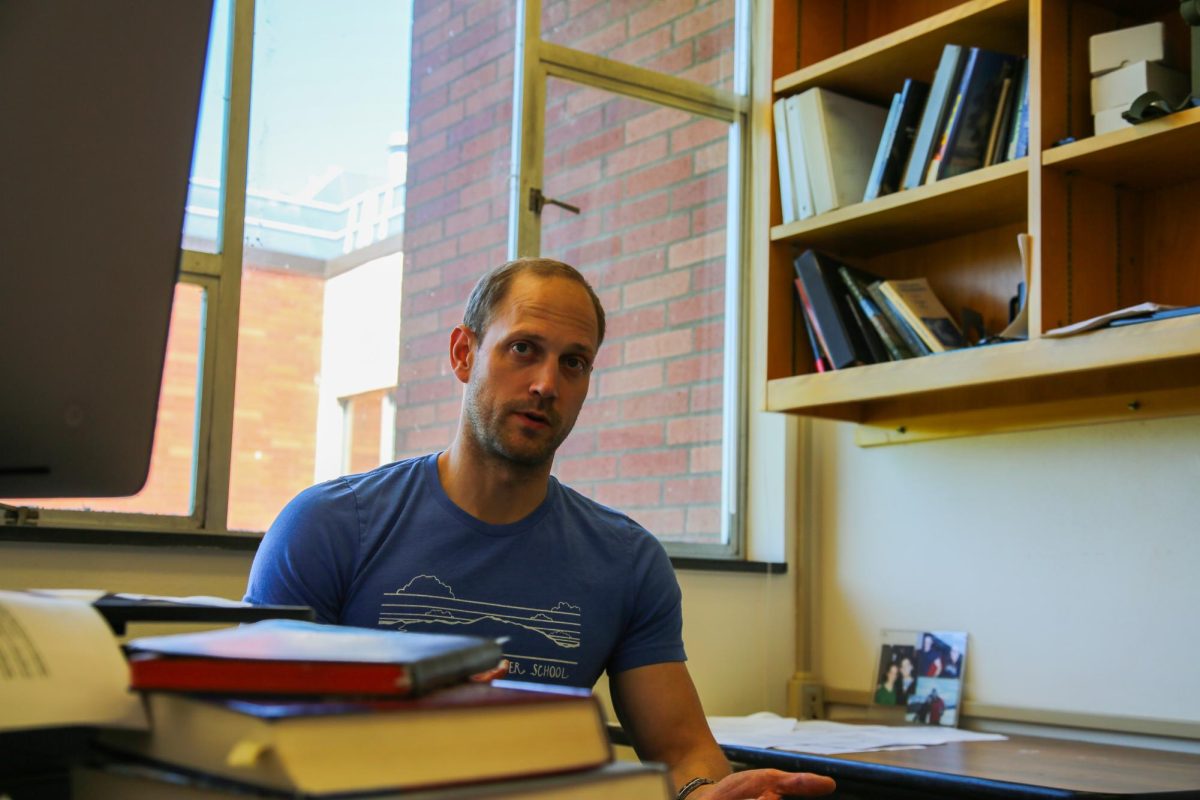As the crescent moon ushered in the sacred month of Ramadan, Oregon State University Muslim students, staff, faculty and community embarked on a journey of spiritual reflection, self-discipline and solidarity.
“Ramadan is not a holiday. It is a holy month,” said Zeena Faulk, center director of OSU’s Ettihad Cultural Center.
Ramadan, the ninth month of the Islamic lunar calendar, is a time for the Muslim community that observes the holy month to partake in activities such as fasting and prayer, according to Ing, and lasts from March 11 to April 9 in 2024.
Physical rigor aside, Ramadan’s spiritual significance offers believers an opportunity to reconnect with themselves, their community and Allah. The month prompts an increase in opportunities for acts of charity and bonding.
Scott Vignos, OSU’s vice president and chief diversity officer, has worked in his position to bring awareness of diversity to campus. Amongst the responsibilities of implementing ways to diversify academic spaces and make them accessible, Vignos also works within his office to secure funding for programming cultural events on campus.
“The Office of Institutional Diversity provides support for these events through sponsorship and promotion,” Vignos said.
In the spirit of community and bonding students on campus can look forward to seeing programming by the various organizations on campus like the Muslim Student Association and the ECC.
Beyond programming, Ramadan is multifaceted and requires more than just community bonding for those who observe.
Students on campus can go into the holy month and know that even when fasting, their diets are still being observed.
“University Housing and Dining Services works with students and employees to ensure dining options are available for those fasting during Ramadan,” Vignos said.
When asked what more OSU is doing to ensure the Muslim population on campus has the resources and platforms needed to celebrate and observe Ramadan, Vignos said that the Office of the Dean of Students “encourages” faculty to be aware of practices associated with the holy month.
To establish that students of all religious backgrounds’ needs are met, the offices of ODS and OID consult with faculty to collaborate on how best to create inclusive learning environments, while also observing religious holidays or practices.
Since Ramadan is a spiritual practice, it can be a different experience for everyone, with different students getting involved and preparing in different ways.
Community backing and feeling seen on campus can help those observing feel supported while going into the holy month, according to Hamza Benaggoun, a junior studying computer science at OSU and a member of MSA. Benaggoun spoke about Ramadan and what it meant to him.
“Ramadan is a month to purify myself in terms of renewing my faith,” Benaggoun said. “It’s not about eating food; it’s about losing my appetite and focusing on the hereafter. I want this month to be a new beginning for me moving forward, with a life closer to God and hopefully carry this on throughout the year.”
With that comes preparation of the mind and body, and Benaggoun has a way of putting himself in the right headspace for that as well.
He thinks of the “huge reward” Allah gives for the efforts of prayer, fasting and devotion. Nothing of what he does is in vain to him, it’s all intended to be done to be a better version of himself.
There is also a saying that Benaggoun spoke about, saying that during the holy month, the gates of heaven are open and the gates of hell are closed and double-chained, so the efforts being put forth by practitioners are noticed.
Staying clear of distractions and keeping focused helps keep his spirit ready to observe the holy month.
“(I will be) avoiding things that waste my time, like social media, and just try to get in touch with my spiritual side,” Benaggoun said.
Ramadan is also celebrated differently within cultures and though the fasting and observation parts of it may be the same, some parts do differ.
Depending on where you’re from and how you practice it will look different but Benaggoun said he likes to participate by celebrating with his friends and community members and watching how they participate.
“I enjoy experiencing different cultural practices by just visiting my friends who are from different cultures and experiencing their traditions along with them,” Benaggoun said.
When it comes to interacting with those outside their communities, however, what are some challenges that may be faced by the Muslim community? Benaggoun offered non-Muslim OSU students and staff advice on how they can aid their fellow Beavs.
Professors could remember to not schedule exams or assignments to be due during the fasting period, allowing the students to keep their mental focus. Once they are able, they can then resume turning in assignments.
Also, not scheduling lunch meetings, or any kind of meeting that falls during Iftar time. This allows for those who are participating to eat when they are supposed to and still be productive during the day.
Community members also shouldn’t be afraid to engage with and ask questions of their Muslim friends. To show interest and be curious can be validating for some.
“I’d say, as Muslims, we like it when people ask us questions,” Benaggoun said. “I know a lot of people ask, ‘Why do you do this?’ [fasting]. Some people think I’m going to get offended. I won’t. I like it when people ask questions because it makes me feel validated.”
Students who may have questions concerning accommodations for Ramadan, other religious holidays or periods of observation are encouraged to meet with staff in Equal Opportunity and Access who can provide information and guidance.














































































































